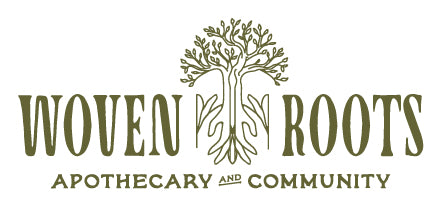Kwang Mae grew up in love with nature. She would spend her days wandering barefoot through the forests along the Indian River in Sebastian, Florida. Later in life, her affinity for nature was reflected in the studies and jobs that she chose. She was motivated by her voracious desire to learn about and connect with nature more and more. She strived to figure out how to help others do the same, whether that was with plants, food, animals…however she experienced connection, she wanted to share it. But until recently, she felt like her efforts weren’t quite hitting the mark; things felt superficial, and she couldn’t figure out how to go deeper. Enter ecopsychology. Kwang Mae was studying religion at Naropa University in Boulder, Colorado when she discovered that all the things she had been trying to do to connect people with nature, which she thought she was making up, actually existed in a field of study and knowledge. She pretty quickly changed her major in graduate school and joyfully jumped into ecopsychology. Studying ecopsychology helped her put words, concepts, and practices to so much of the work she had been doing all along such that she has been able to refine her ideas and access deeper levels than ever before. This work has rejuvenated her passion and understanding for how to support people (and herself) with cultivating deep connections with nature.
Elizabeth also grew up in love with nature. Her childhood included writing love songs to the earth and dreams of saving the planet. But while she once thought that her career would directly involve earth care, life led her to a different path than she had imagined. At a time when she was feeling lost and uncertain, she found another love. Enter yoga. For Elizabeth, yoga took her on a deep, enthralling journey of healing and transformation. The magic was in the experience of embodiment, which helped her feel more alive and in love (with herself, with others, with nature, with everything!) than she knew was possible. As a yoga teacher, she observed that many others seem to have a similar experience of the transformative power of embodiment. The curiosity about this phenomenon and the desire to learn more about what to do with it sent her to Naropa University. She is now a somatic psychotherapist, integrating the power and wisdom of embodiment into her work with kids, couples, and adult individuals.
During our time at Naropa, we had many conversations about the intersection of ecopsychology and somatic psychotherapy. In our conversations, we recognized the troubling parallel between the collective attitudes towards bodies and the Earth, which both tend to be objectified, or mechanized in modern society. The planet is viewed as a wealth of resources to be used or extracted, rather than a living entity unto itself, worthy of care and reverence; the planet is often perceived as separate rather than that which connects the intricate web of life, a web of which we are a part. Similarly, many people experience their body as distinct—at best a tool and at worst a burden or an obstacle to overcome–rather than an integral part of their wholeness and lifeforce.
We have also observed that the experience of separation from one tends to reinforce the other. Feeling separate from the body can dampen the senses that allow a person to take in the world around them. Ignoring or taking for granted the body’s capacity and need for nourishment and support will likely, in turn, decrease one’s ability to register and appreciate the nourishment and support that the earth provides. And arguably, continuing to view our collective earth body as something separate and distinct may inhibit the potential to view our individual bodies any differently.
Conversely, we believe that deepening our connection to one can magnify our connection to the other. As we learn to care for and appreciate our bodies, we become more attuned to the Earth’s intrinsic value; acknowledging the Earth as a living entity deserving of care, and a living ecosystem in which we are intertwined, can transform how we perceive and relate to our individual bodies.
This integrative perspective on body and earth connection forms the heart and soul of our mission. Woven Roots is not just a vendor of teas and herbs; we are a community where people can embark on a journey of self-discovery and reconnection with the planet. Through workshops, practices, and shared experiences, we aim to empower others to live embodied lives in harmony with the Earth. We are so excited to invite you to join us on this path to experiencing the profound interplay between the body and the planet, and how this connection can be a source of healing and transformation for all.
Photo: Kwang Mae (front) and Elizabeth (back) Ocheltree-Cho. Photo credit: Amy Zelt

